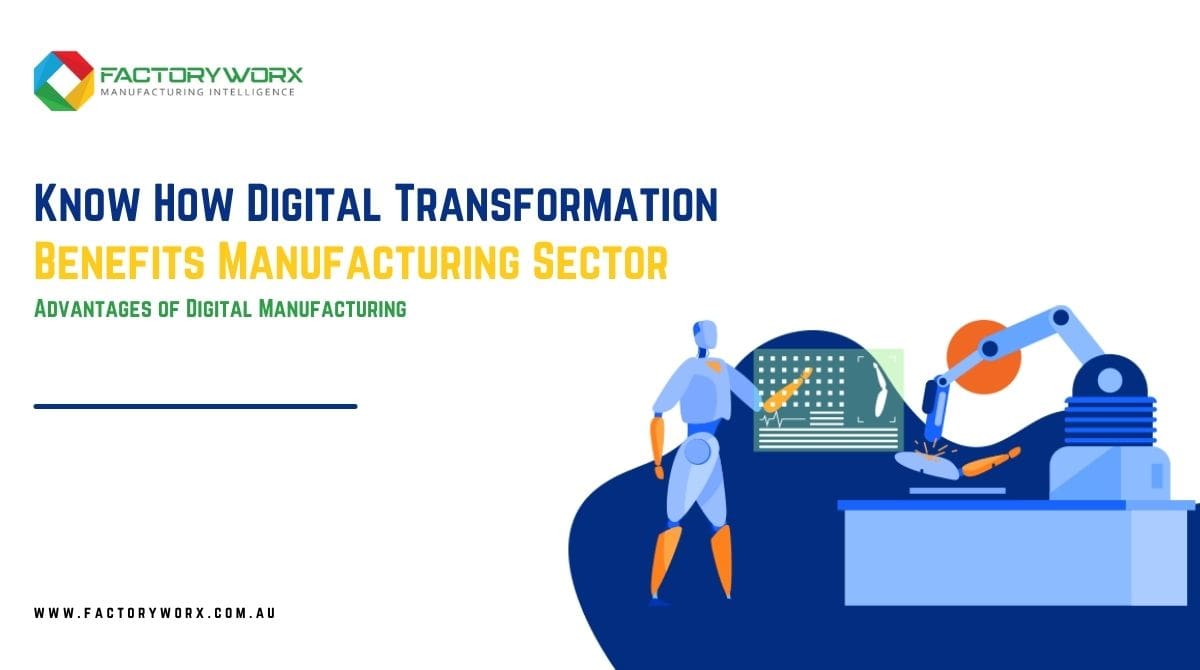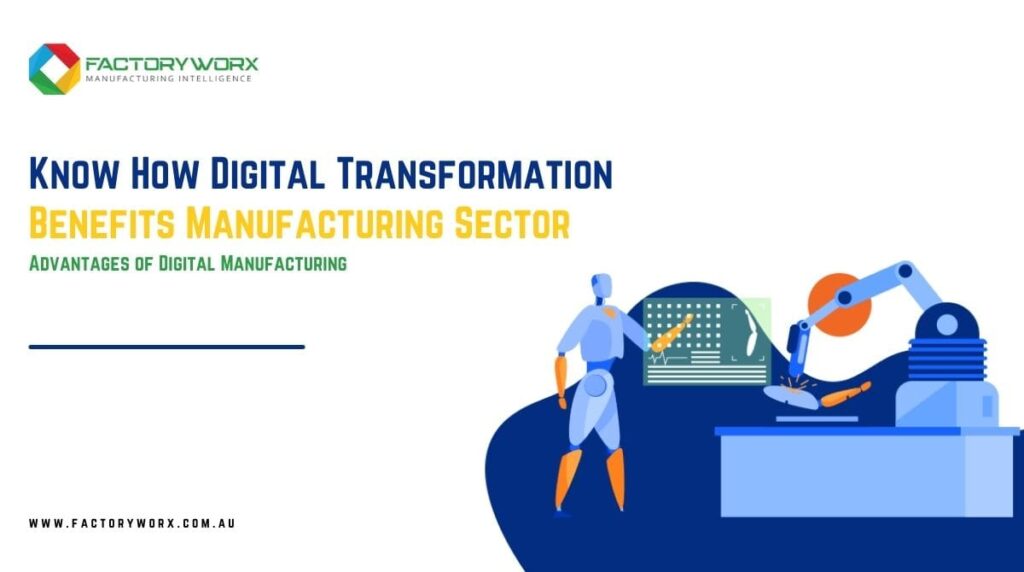
- September 29, 2021
- admin
- 0
Read Our Blog

Know How Digital Transformation Benefits Manufacturing Industry
Popular studies state that organizations invest trillions of dollars in digital transformation. The worrying fact is those huge investments do not provide expected results. It may be because these companies do not opt for the apt digital manufacturing techniques or are not prepared for the change.
Digital transformation is not a mere capital investment. It involves the application of the right strategies, addressing the bottlenecks and challenges. This blog will let you know the relevance and the benefits of digital transformation in manufacturing units.
What Is Digital Transformation?
Digital transformation involves integrating the latest technologies into every step of an organization's functions, from internal operations to consumer interactions. The process provides many benefits like refining business and improving the overall customer experience. It provides all advantages of the smart manufacturing system.
The shocking rate of technological advancement has forced manufacturing units to bring in changes. It aids in turning the units into a smart factory, which will give them a competitive advantage in the market. Such change cannot happen overnight. The transformation primarily involves the implementation of new technologies. Ensuring that the workforce keeps up with the change is also part of the change.
Digital Transformation Relevance
The technology evolution forces companies to adopt changes to stay in the competition. In the present scenario, Industry 4.0 has stressed upon a smart manufacturing system. The transformation includes maintaining the right balance between the traditional techniques and adopting the latest digital technologies like cloud computing, data analytics, big data, IoT, artificial intelligence, machine learning and many more.
Hesitance towards adopting the expansion of technology has been a trend in the past. It may be due to various reasons like cost and lack of trained personnel. Industry 4.0 has brought in vital factors—affordability and ease of availability, which encourages manufacturers to look towards digital transformation in manufacturing units. The two factors have transformed a practical choice for almost every industry, irrespective of size and sector.
Benefits Of Digital Transformation In Manufacturing Sectors
Digital transformation in manufacturing involves more than keeping with the technology. It includes proper planning and execution. If all the steps are performed successfully, the benefits can be superficial for both company and the workforce. The key benefits include:
Enhanced production
Digitization of any task would bring enhanced production. Planned digital manufacturing would lead to streamlining of the process. The crucial part of the change involves maximum utilization of machines (connected with each other) and predictive analytics. It helps in recording and sending maintenance data, which is a crucial part of the process. The data help prevent malfunctioning, which further increases output and reduces the prospect of accidents. Further, the data can also help in finding the bottlenecks or areas that need improvement.
Higher quality products
Machine learning and sensors throughout the production line are key parts of digital transformation in the manufacturing process. The change helps in analyzing and monitoring performance regularly. Failure prediction is one of the most loved features of the change, which applies to production tools and the final product. It helps in enhancing the product quality, as it is made in an efficient and well-monitored unit.

Increased customization
Digital transformation allows manufacturers to provide a high level of bespoke services. This attractive feature will attract more customers. The flexibility to provide customization allows the manufacturer to stay ahead of competitors and increase their customer base. Data transformation brings in data-driven production machines. They read and apply tailor-made parameters directly into the production line. It reduces the complications for the production house.
Lower cost
The smart manufacturing system uses data analytics and logistics, which reduce the production cost. The data helps improve the production process and delegation of inventory management. Technologies like virtual reality and augmentation allow saving money. They provide virtual images, even before the production begins.
An investment in digital manufacturing provides
- improved communication
- better collaboration of tools and platforms
- workforce having a real-time view of the supply chain
- maintaining the latest information about the production process, output and any other concerns
- heightens the feeling of trust and respect, along with the benefits mentioned earlier
As a manufacturer seeking professional digital manufacturing is a guarantee to get customized services, resulting in better productivity and increased profits.

